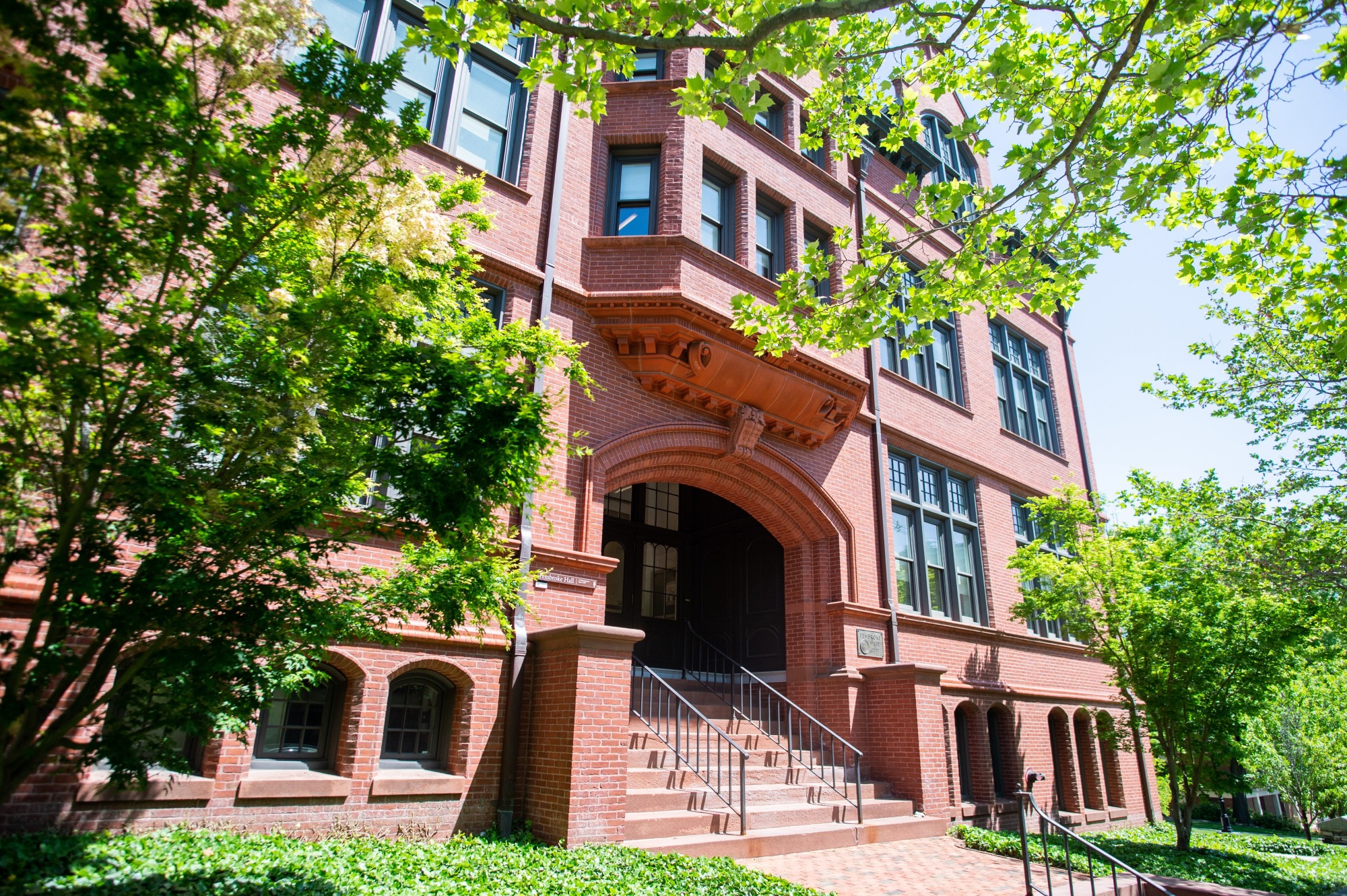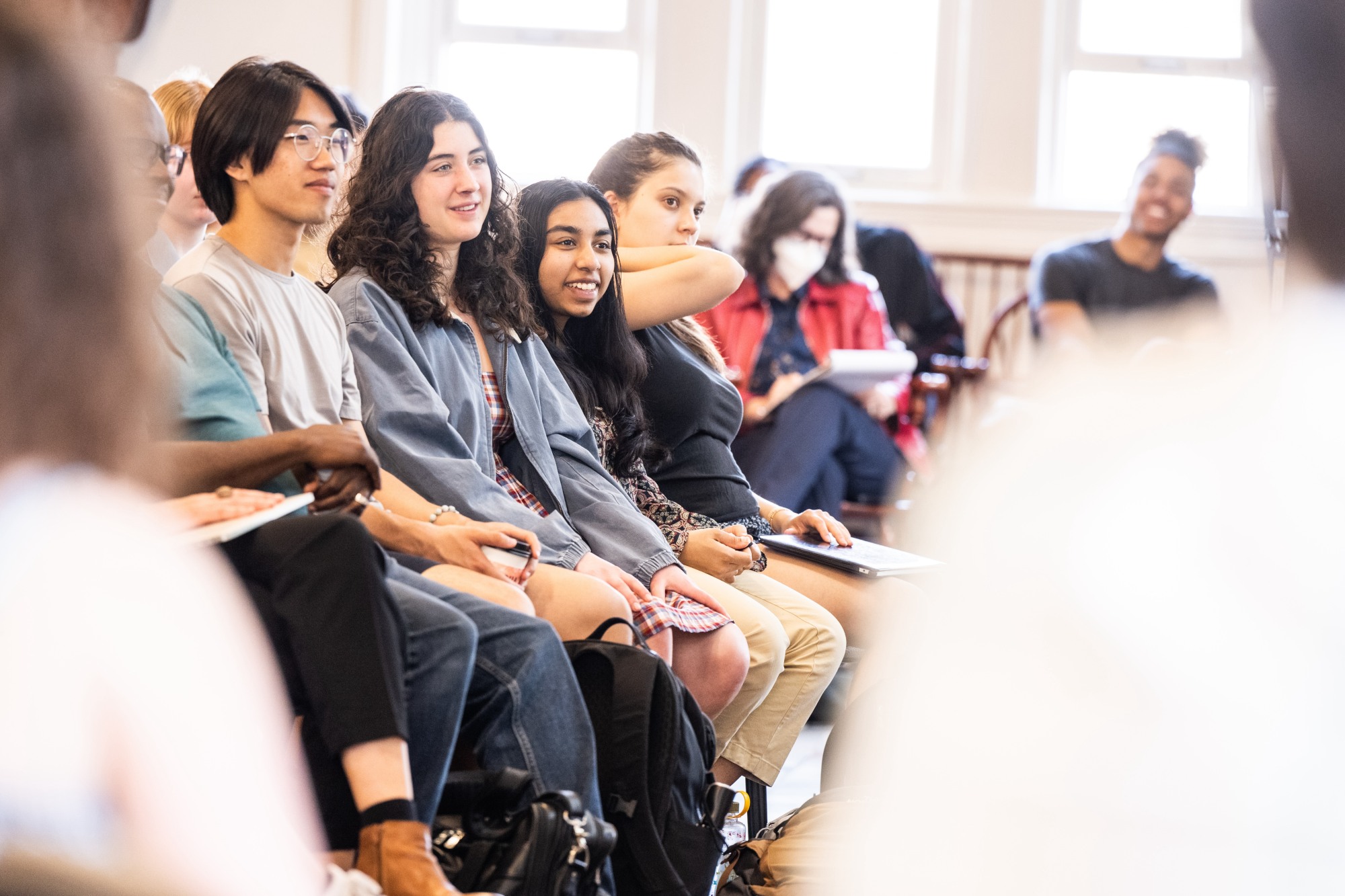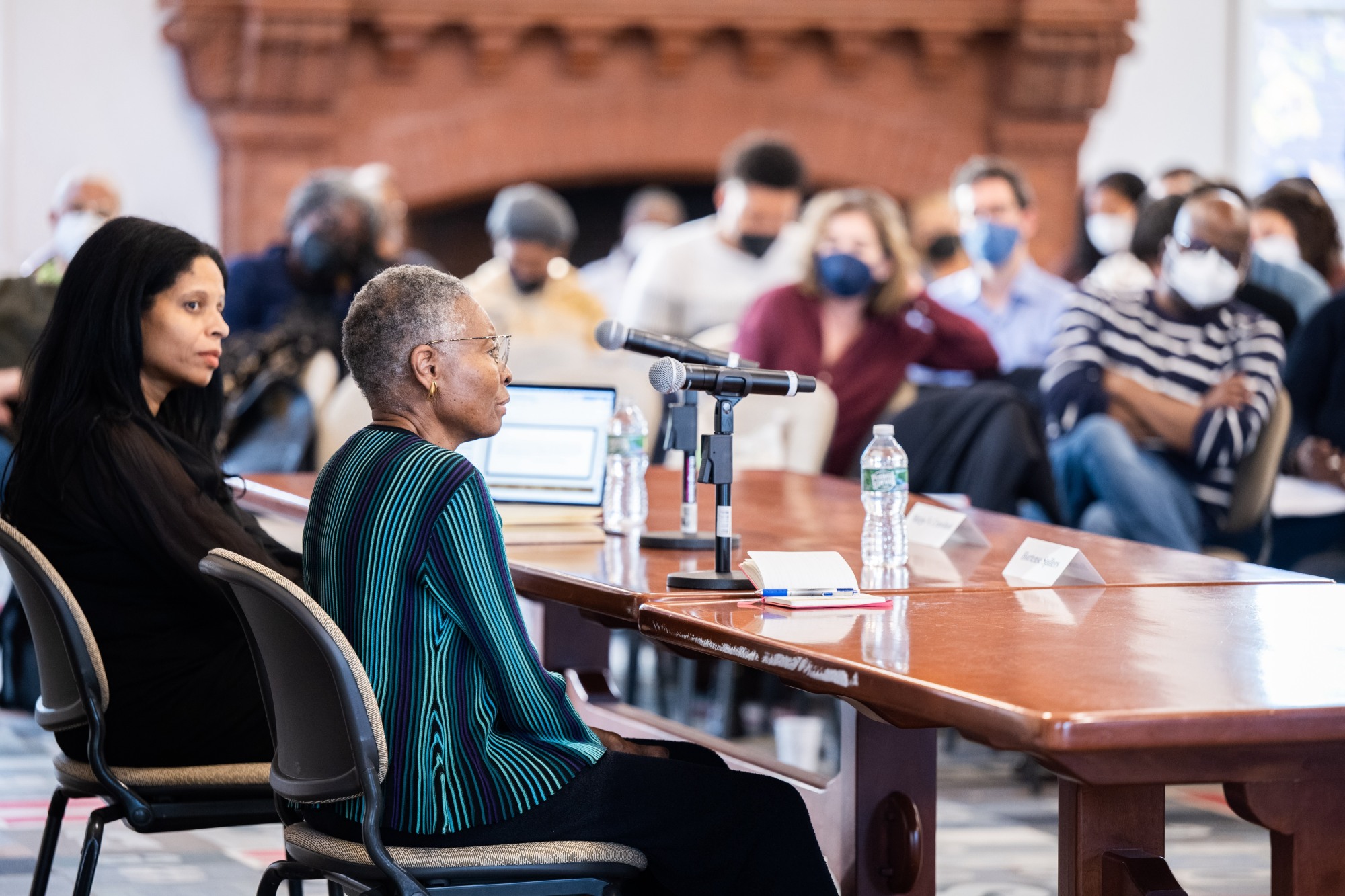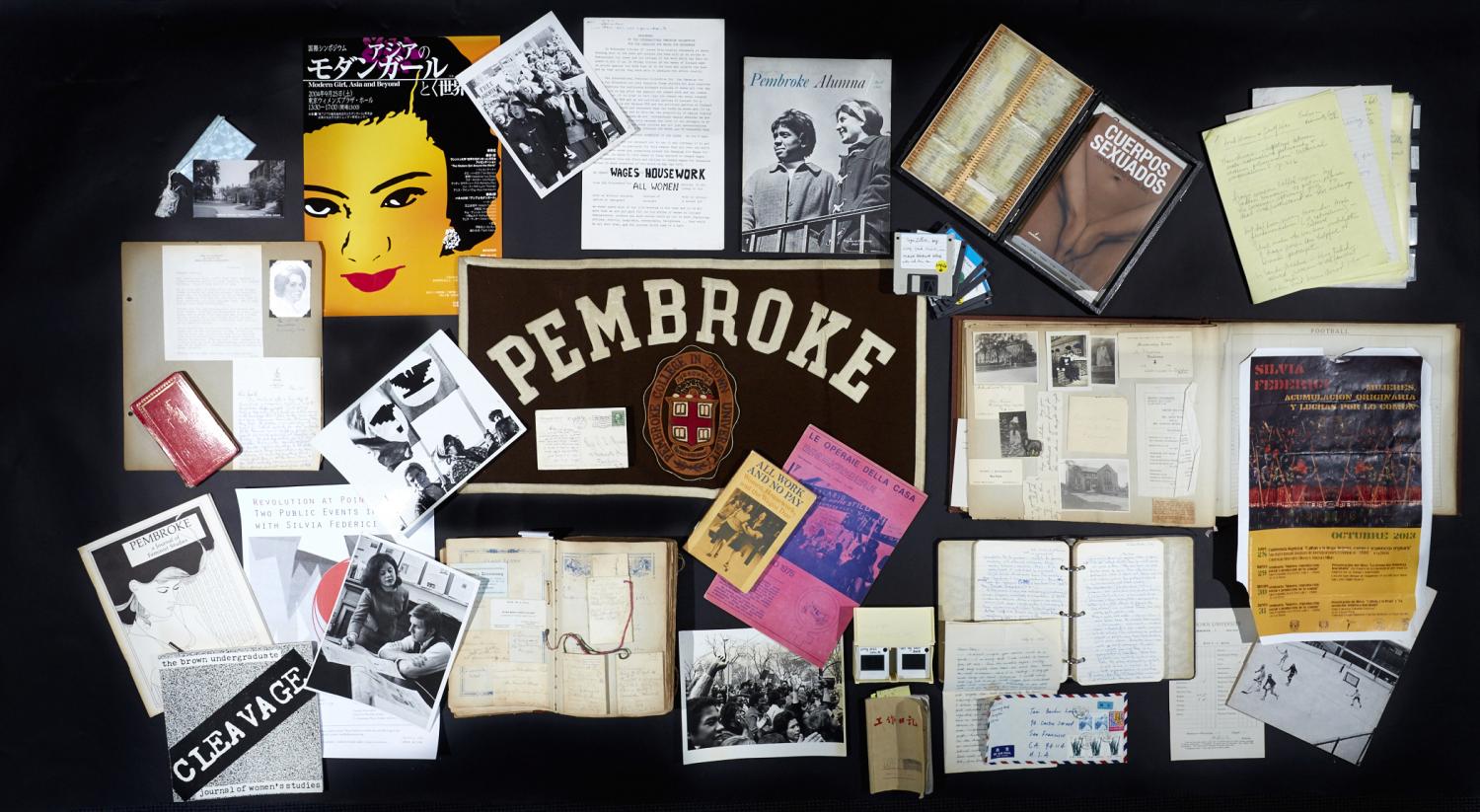
Our Mission
The Pembroke Center at Brown University is a feminist research center devoted to critical scholarship on the struggles faced by people across national and transnational contexts, especially those whose gender identity or sexual orientation make them targets of violence. We believe that redress is inextricable from questions of social, political, racial, medical, environmental and economic justice and demands an interdisciplinary approach to scholarship that can enable transformational change.
The Pembroke Center harnesses a singular combination of programs to interrogate how categories used to differentiate people are produced and mobilized, and how the deployment of categories like gender, sexuality, race, ethnicity, class, citizenship, nationality, political status, and religion, among others, impacts individuals and communities. Along with robust academic and research programs and scholarly initiatives, the Pembroke Center supports a renowned scholarly publication, houses a growing set of archives and an oral history project, trains emerging scholars, editors, and curators, hosts a wide range of public events, and is the hub of a dynamic and supportive community.
Founding and Focus
The Pembroke Center was founded in 1981, 10 years after Pembroke College, the coordinate women’s college in Brown University, merged with The (men’s) College. Since its founding, the Pembroke Center has worked to preserve the history of women and women’s efforts to gain access to higher education while focusing on the theoretical dimensions of the category of gender.
That theoretical emphasis involves questioning what counts as foundational knowledge in a given discipline: How do we know what we know? This questioning of the production of knowledge is related, in turn, to the challenges that intersectional studies present to the academy: through gender studies; studies of race and ethnicity; and cross-cultural and postcolonial studies.
 Marking its 40th anniversary in the 2021-22 academic year, the Pembroke Center is thriving, and its scholars bring a rigorous critical feminist analysis to bear on a wide range of questions related to women, women-identified and non-binary individuals, LGBTQIA+ issues, and critical masculinities. In every setting in which Pembroke Center scholars convene, multiple disciplines are represented and applied. Scholars use tools, methods, and approaches from the humanities, social sciences, life sciences and physical sciences, bringing rigorous theoretical critique to bear on the world's most pressing matters, and discovering new ways to address them.
Marking its 40th anniversary in the 2021-22 academic year, the Pembroke Center is thriving, and its scholars bring a rigorous critical feminist analysis to bear on a wide range of questions related to women, women-identified and non-binary individuals, LGBTQIA+ issues, and critical masculinities. In every setting in which Pembroke Center scholars convene, multiple disciplines are represented and applied. Scholars use tools, methods, and approaches from the humanities, social sciences, life sciences and physical sciences, bringing rigorous theoretical critique to bear on the world's most pressing matters, and discovering new ways to address them.
Working at the intersection where the production of knowledge meets articulations of difference, Pembroke Center scholars ask questions like: How are global histories of race, gender, and class connected to structures of knowledge and power that are ordered by color, particularly skin color? What is the role of finance in the reproduction of gender, race, and class inequalities? How do notions of male power and political sovereignty impact rates of domestic violence? What perspectives do media outlets feature when reporting on race and gender?
New Pathways
In any classroom where a Pembroke Center or gender and sexuality studies program (GNSS) course is being taught, there are almost as many disciplines represented as there are students. The openness of the Pembroke Center’s multidisciplinary approach embodies Brown’s emphasis on integrative scholarship and supports students as they act as the architects of their own education to break new scholarly ground.
Undergraduates concentrating in GNSS focus on a well-defined question or topic and work closely with a concentration advisor to investigate this focus area rigorously. This enables students to undertake innovative research projects that influence their future academic and professional lives. One student who was headed to law school after graduation, for example, researched regional jurisprudence and family law in the postbellum American South through the lens of gender and racial power dynamics. The resulting thesis advances our understanding of patriarchy and kinship, and the student’s process--examining case law as part of a GNSS project--is a scholarly approach that can be applied usefully in law school.
Graduate students who earn the GNSS certificate use the specialized training they gain to approach old questions in new ways, like the anthropology PhD student who combined ethnographic research and cutting-edge theory to avoid retreading tired conversations that render abortion as a question of personal choice versus personal responsibility, instead showing how abortion decisions are the result of complex biosocial relations.
Likewise, postdoctoral fellows and faculty take advantage of the Pembroke Center's network of scholars to break open their own research, as when a book manuscript by an art history scholar on a 1980s art movement was broadened by viewpoints shared by visual art, comparative literature, and German studies colleagues.
Further, the Pembroke Center's proctorship program for graduate students enables emerging scholars to engage in professional activities that complement their scholarship. Pembroke Center Archives Graduate Curatorial Proctors cross-train into professional curatorial work, and both learn about and take the lead on archival projects, like developing the Black Feminist Theory Archive. Proctorships with differences enable PhD candidates to immerse themselves in the world of scholarly publishing, think about arguments in both critical and editorial ways, extend their scholarly networks, and contribute to the production of a leading journal.
Complementary Programming
 The Pembroke Center carries out its mission with programming that is more comprehensive than that of a typical academic department or research center. In addition to our academic programs, signature research forum, and renowned postdoctoral program, the Pembroke Center houses the editorial offices of the scholarly journal differences: A Journal of Feminist Cultural Studies, the Pembroke Center Archives and Pembroke Center Oral History Project, public events including research lectures as well as panels featuring notable alumnae/i, and forms of research funding that encourage and recognize work by faculty and students from across the University.
The Pembroke Center carries out its mission with programming that is more comprehensive than that of a typical academic department or research center. In addition to our academic programs, signature research forum, and renowned postdoctoral program, the Pembroke Center houses the editorial offices of the scholarly journal differences: A Journal of Feminist Cultural Studies, the Pembroke Center Archives and Pembroke Center Oral History Project, public events including research lectures as well as panels featuring notable alumnae/i, and forms of research funding that encourage and recognize work by faculty and students from across the University.
Through these complementary programs, the Pembroke Center gives scholars, community members, and members of the public many points of entry to engage with ideas and scholarship: in classroom discussions, in the pages of differences, in the archival collections, via oral histories, and in the company of others at a virtual or in-person event.
Crucially, engagement here means active give and take. Researchers, faculty, staff, friends and alumnae/i can peruse the archives and contribute to the historical record by giving their own oral histories, and theorists within our broader community contribute their papers to the archives. Pembroke Center scholars use the essays in differences to enlarge their scholarship and research, and graduate proctors contribute to the editorial production of the journal. Pembroke Center events do not simply serve students, faculty and alumnae/i but feature their work and perspectives. Students who use the journal or the archives for their research can also learn, through proctorships, how to develop archives or shepherd academic articles through peer review and into publication, and undergraduate fellows in the Pembroke Seminar share their thoughts as readily as faculty fellows.
